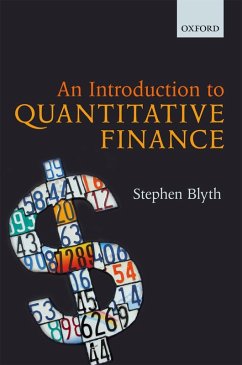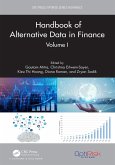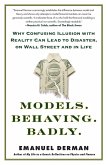The worlds of Wall Street and The City have always held a certain allure, but in recent years have left an indelible mark on the wider public consciousness and there has been a need to become more financially literate. The quantitative nature of complex financial transactions makes them a fascinating subject area for mathematicians of all types, whether for general interest or because of the enormous monetary rewards on offer. An Introduction to Quantitative Finance concerns financial derivatives - a derivative being a contract between two entities whose value derives from the price of an underlying financial asset - and the probabilistic tools that were developed to analyse them. The theory in the text is motivated by a desire to provide a suitably rigorous yet accessible foundation to tackle problems the author encountered whilst trading derivatives on Wall Street. The book combines an unusual blend of real-world derivatives trading experience and rigorous academic background. Probability provides the key tools for analysing and valuing derivatives. The price of a derivative is closely linked to the expected value of its pay-out, and suitably scaled derivative prices are martingales, fundamentally important objects in probability theory. The prerequisite for mastering the material is an introductory undergraduate course in probability. The book is otherwise self-contained and in particular requires no additional preparation or exposure to finance. It is suitable for a one-semester course, quickly exposing readers to powerful theory and substantive problems. The book may also appeal to students who have enjoyed probability and have a desire to see how it can be applied. Signposts are given throughout the text to more advanced topics and to different approaches for those looking to take the subject further.
Dieser Download kann aus rechtlichen Gründen nur mit Rechnungsadresse in A, B, BG, CY, CZ, D, DK, EW, E, FIN, F, GR, HR, H, IRL, I, LT, L, LR, M, NL, PL, P, R, S, SLO, SK ausgeliefert werden.









